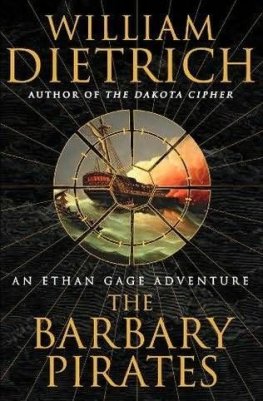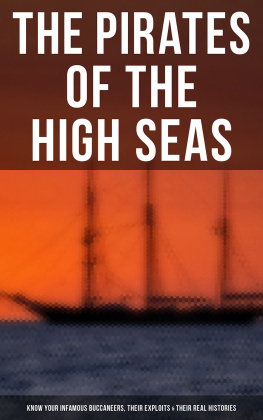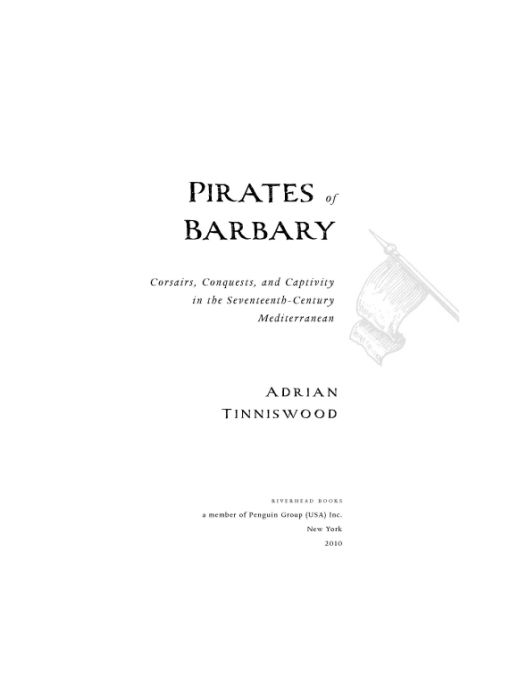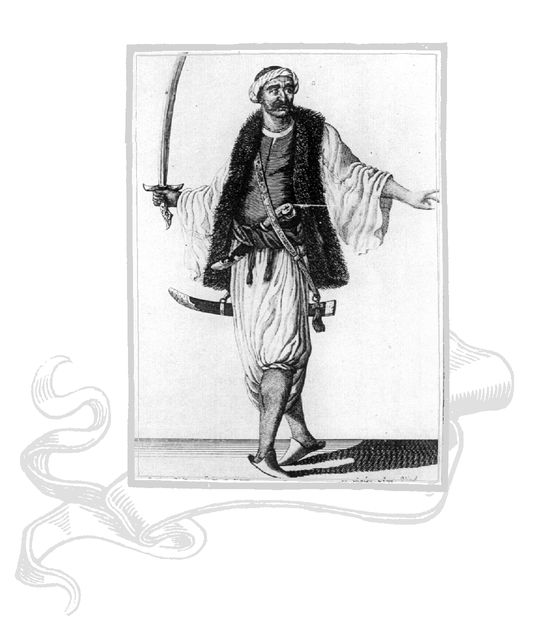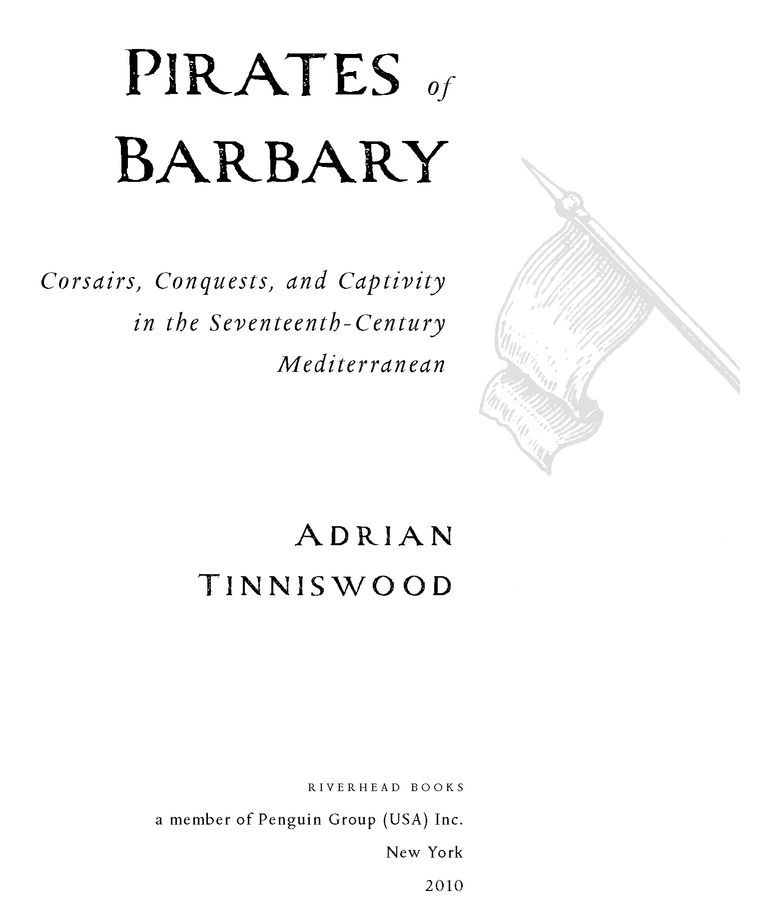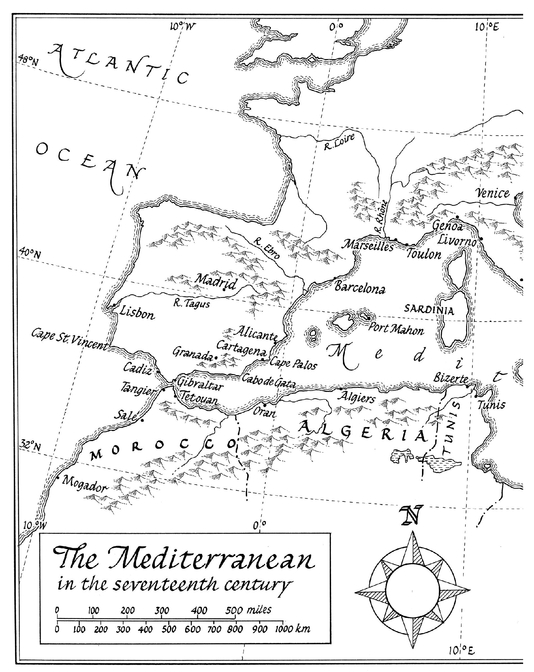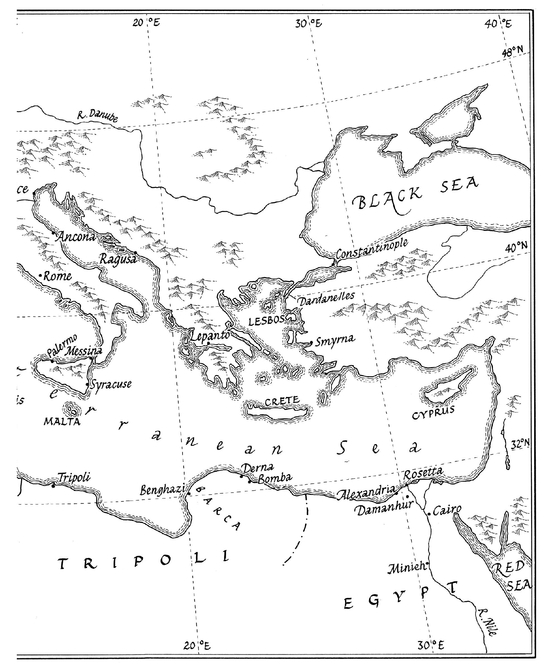Table of Contents
ALSO BY ADRIAN TINNISWOOD
The Verneys: A True Story of Love, War, and Madness
in Seventeenth-Century England
By Permission of Heaven: The True Story of the Great Fire of London
His Invention So Fertile: A Life of Christopher Wren
The Art Deco House
The Arts & Crafts House
The Polite Tourist: Four Centuries of Country House Visiting
Visions of Power: Ambition and Architecture from Ancient Times to the Present
Life in the English Country Cottage
Country Houses from the Air
The National Trust: Historic Houses of Britain
For Carol, Clive, and David:
absent friends
Imagine (as thou readest) that thou hearest the cannon playing.
JOHN BUTTON, Algiers Voyage (1621)
And there were some who went on the sea jihad and found fame.
AHMAD BIN MOHAMMAD AL-MAQQARI (c. 1621)
PREFACE
Pirates are history.
The history of my own obsession with them goes back nearly ten years, to a time when I was researching a seventeenth-century English family, the Verneys. In 1608 a country squire named Sir Francis Verney fell out with his mother-in-law, walked out on his teenage wife, and went to North Africa, where he became a Muslim and embarked on a brief but spectacular career as a Barbary Coast pirate. How did that happen, I wanted to know. Did other Englishmen turn Turk like Sir Francis? I discovered that they did. And then I wanted to know what life was like for this community of renegades that operated at the interface of Christendom and Islam, a community that seemed to move effortlessly between those two worlds.
As I looked for answers to those questions, I discovered the stories which make up this booktales of bravery, brutality, and betrayal, tales in which heroes and villains changed roles in the blink of an eye, like the characters in some Cold War spy novel. I found that robbery on the high seas was far from being the private enterprise Id imagined it to be: behind it lay a sophisticated system of socialized crime, state-sanctioned and state-regulated, an early and efficient example of public-private partnership. And I came to understand the enormous economic importance of the Mediterranean trade in slaves, a trade which took the liberty of around one million Europeans and at least as many North Africans in the course of the seventeenth century.
While I was working on the cluster of interlocking narratives which make up Pirates of Barbary, stories of modern-day piracy started to appear in the news. First it was Indonesia. Then there were reports of Nigerian pirates using small speedboats to hijack fishing vessels off the West African coast. There were an average two attacks a week in 2007, increasing to two a day in the first month of 2008.
But it was the Somalis who really captured my attention. Adopting the same tactics as the Nigeriansthe same tactics, in fact, as the Barbary pirates I was writing aboutgroups of Somali militiamen began to prey on merchant ships as they passed along the coast of Somalia, which, at 1,880 miles, is the longest in Africa. Some of their weapons were differentrusty Kalashnikovs and dodgy-looking grenade launchers rather than culverins and cutlassesbut others hadnt changed in 400 years. They still relied, for example, on shock and awe, intimidation and physical courage. There were 130 robberies and attempted robberies on the high seas involving Somali pirates in 2008. A Ukrainian cargo ship packed with antiaircraft guns, rocket-propelled grenades, and Russian tanks was hijacked that September, and two months later pirates captured the $150 million Sirius Star, a colossal supertanker three times the size of an aircraft carrier.
Pirates are history? History was repeating itself. As I wrote of how a handful of men using small boats, scaling ladders, and sheer nerve had managed to hold the world to ransom in the seventeenth century, I watched on TV as a handful of men using small boats, scaling ladders, and sheer nerve were managing to hold the world to ransom in the twenty-first. And the sums involved were enormous. It cost the owners of the Ukrainian cargo ship, the M.V. Faina, $3.2 million to get their vessel back. The Sirius Star with its crew and its cargo of two million barrels of crude oil was handed over in exchange for $3 million.
That winter, the winter of 2008-2009, marine insurers from all over the world gathered in London to discuss the problem of African piracy. Senior figures condemned the Somali pirates as the scourge of modern shipping, calling them vermin and demanding a concerted response from the international communityjust as they had in seventeenth-century London. Meanwhile, shipowners began to avoid the Gulf of Adenjust as they avoided the coast of Barbary four centuries earlier. The owners of very large crude carriers (VLCCs) refused to use the Suez Canal. Vessels were sent around the Cape of Good Hope, or through the Russian Northeast Passage, navigable without the aid of icebreakers for the first time in history as a consequence of global warming. The Philippines barred its nationals from working on any vessel that was due to travel through the waters off Somalia, and other seafarers were given double pay as danger money. Iranian and Pakistani nationals were reported to be joining the Somalis, raising the specter of jihad and links with al-Qaeda. In the summer of 2009 a Republican congressman introduced a bill into the U.S. House of Representatives giving immunity to any American merchant sailor who wounded or killed a pirate in response to an attack.
While the pirates own communities hailed them as heroes, the international community sent in their navies. In 2009 the U.S. Navy established a multinational task force to carry out counterpiracy operations in and around the Gulf of Aden. Warships in the U.S. Fifth Fleets Combined Task Force 151 (CTF-151) were joined by ships from Operation Atalanta, the European Unions first-ever naval operation, which mandated vessels to bring to an end acts of piracy and armed robbery which may be committed in the areas where they are present. Norway, China, Russia, and South Korea sent warships to the region; so did India and Pakistan and Turkey. Croatia, eager to take part in Operation Atalanta as a way of furthering its application to join the EU, was allowed to send a vessel only after promising to respect the human rights of any pirates its forces might capture. Japan relaxed its pacifist constitution to allow the deployment of two destroyers.
By the summer of 2009, warships, aircraft, and military personnel from twenty-two nations were patrolling two million square miles of ocean in the biggest antipiracy operation the world has ever seen. It failed. And it continues to fail, for exactly the same reasons that it failed in the past: as the story of the Barbary pirates shows, the long-term solution to the problem lies onshore, and it can be achieved only by making fundamental changes within a culture which regards piracy as a legitimate activity.





